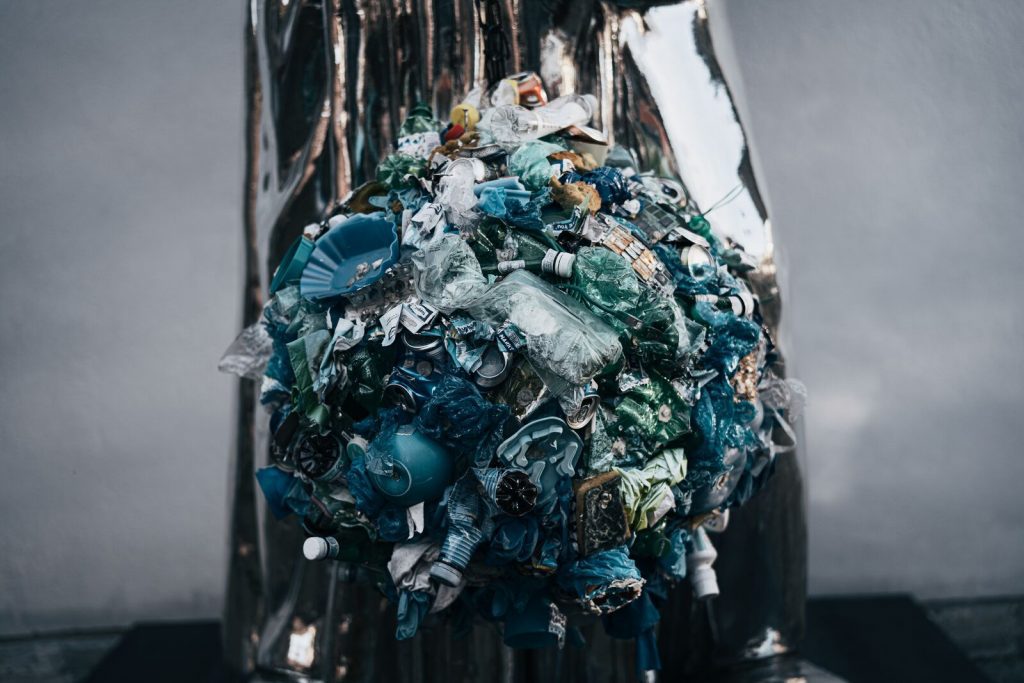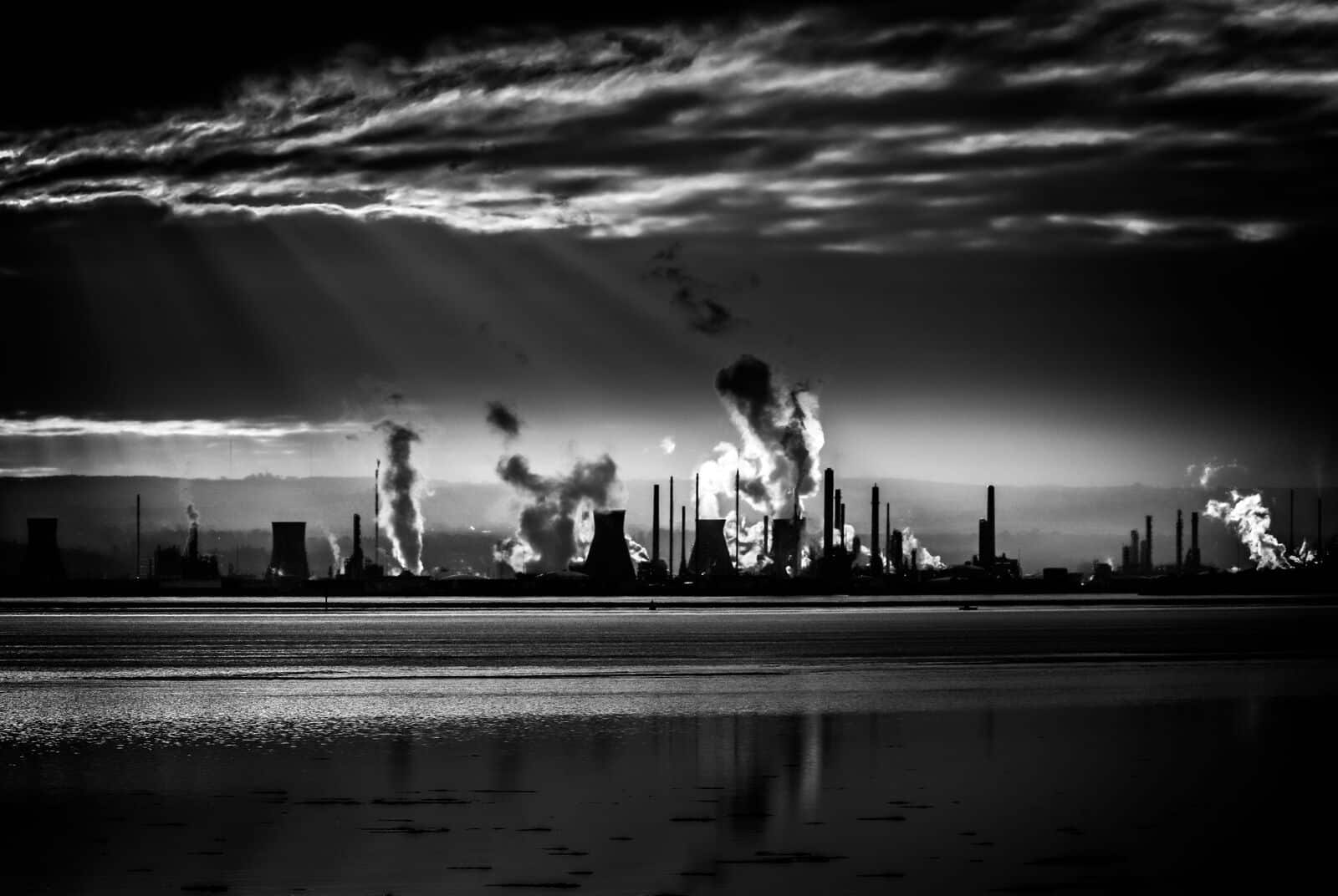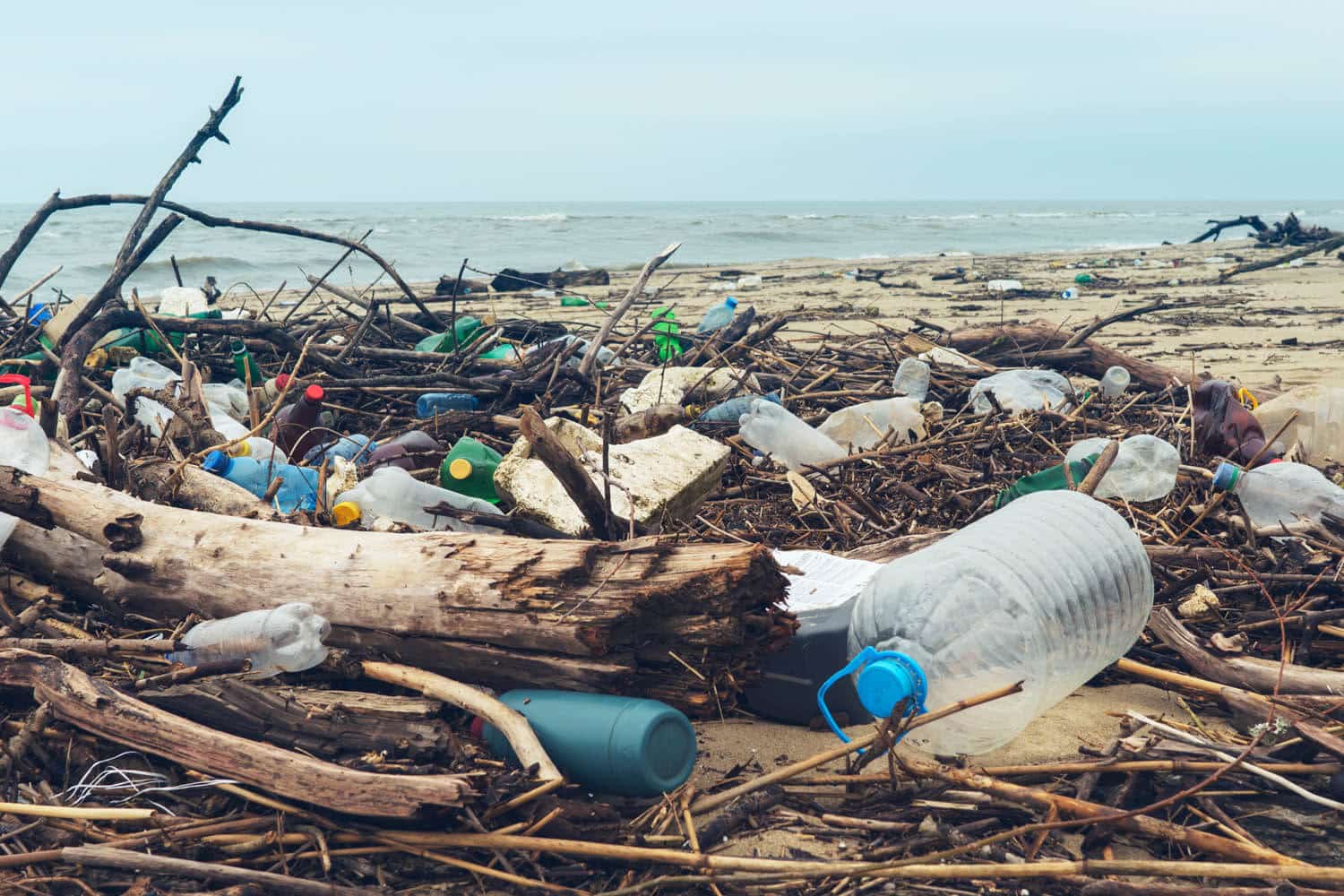Over the last several years, growing numbers of people have seen or heard the fact that traditional “mechanical” plastic recycling has epically failed: At most, only 9 percent of all plastic made since the mid-1900s has been sorted apart, shredded up, and melted down for reuse in new batches of plastic stuff, downcycled into other objects. Meanwhile, most plastic collected as “recycling” is actually landfilled, burned, or shipped to other nations and cause pollution, and is a major contributor to the climate crisis. Meanwhile, global production of plastics continues to climb, and is only expected to problematically rise in the future.
As a result of the increasing awareness around plastic recycling’s failure, the plastic and petrochemical industries—as well as consumer brands using huge amounts of plastic in their products—now face significant backlash. Corporate giants churning out plastic pollution, which decades ago answered the public outcry over plastic pollution with mechanical recycling and anti-litter campaigns, are working to counter society’s growing consciousness.
This time around they are pitching “advanced recycling,” sometimes also called “chemical recycling,” to the public, media, and policymakers as a revamped strategy for coping with their rapidly accumulating plastic pollution. In reality, “advanced recycling” is just another harmful industry-driven false fix that delays and distracts from real solutions—most notably among them, turning off the plastic tap.
There’s Nothing Advanced About “Advanced Recycling”

Over the last decade, companies dealing in fossil fuels, petrochemicals, consumer goods, and plastics have launched or planned more than 120 “advanced recycling” operations worldwide, yet less than 10 percent are reportedly in operation. “Advanced recycling” facilities turn plastic waste into low-grade fossil fuels and petrochemicals (called “feedstock” in industry speak) by subjecting it to high heat, microwave radiation, pressure, and/or chemicals.
Industries that support “advanced recycling” claim it is a “sustainable” and “circular” way to address plastic waste by turning it into substances that could be turned into plastic again. But the process is far from circular in practice: converting what yields from “advanced recycling” plastic would require significant input of extra chemicals, energy, and additives. The industry has no track record of reliably doing this.
Most commonly, “advanced recycling” operations transform plastics into low-grade fuels that, just like freshly extracted gas or oil, release toxic pollution and greenhouse gases when burned for energy—and that’s when they produce anything at all. Currently, “advanced recycling” operations are predominantly small scale. The industry reportedly struggles with problems relating to sorting and cleaning mixed plastic waste, as some plastics like polyethylene (PET) and polyvinyl chloride (PVC) appear to gunk up “advanced recycling” equipment.
“Advanced Recycling” Means More Pollution

As they did with mechanical recycling, industries and corporations are now painting “advanced recycling” as a “green,” “circular” panacea to the plastic crisis they created—despite plenty of recent truth-telling done by frontline groups, scientists, and the media about its true costs. While doing nothing to stop plastic production—the key cause of plastic pollution—“advanced recycling” operations cause serious harm to people and the environment in many ways, including by:
- creating large amounts of air, soil, and water pollution through releases of toxic chemicals, such as benzene, dioxins, ethyl benzene, toluene, and xylenes, which can cause cancers (an alarming one in four lifetime risk of cancer from at least one “advanced recycling” process), nervous system damage, and harm to reproductive and developmental health
- creating toxic waste products from “advanced recycling” that are not reliably tracked, tested, and logged for their harm to human and environmental health
- being overwhelmingly sited for BIPOC, rural, and low-income communities, causing environmental injustice and dire public health disparities
- relying upon continued production of plastic and exploitation of fossil fuels to exist
- contributing to the climate crisis by demanding energy that releases greenhouse gases and creating products that continue to release greenhouse gases when they are subsequently used (most often burned as fuel)
- requiring storage and release of hazardous chemicals on site
- carrying risk of fires and explosions at facilities that could harm workers and communities, due to high heat and chemicals used as well as plastic waste stored
False Solutions Keep Industries in Business…at Our Expense
With waste incinerators increasingly under fire for pouring out streams of toxic ash, hazardous chemicals, and greenhouse gases in underserved communities, not “burning plastic for energy” is something that “advanced recycling” operators sometimes tout. However, “advanced recycling” operations require significant amounts of energy, the sources of which are predominantly fossil fuels. This continued reliance on fossil fuel exploitation and plastic production that “advanced recycling” relies upon deeply undermines global climate, environmental, and justice commitments.
Just this year, the United Nations agreed on a mandate for a legally binding global plastics treaty that addresses plastics up and down the pipeline, and called plastics an urgent human rights issue. “Advanced recycling” should not be accepted as a solution to plastic pollution at a time when humanity’s uncontrolled release of manmade chemicals and materials—namely, petrochemical-derived plastic—has breached a threshold of both safety and accountability.
If not for plastics, petrochemicals, and fossil fuels, “advanced recycling” would not exist. Allowing industries to continue exploiting and producing these substances is a major concern on a planet where leading scientists agree they must urgently stop doing so, or risk raising Earth’s temperature past a dangerous threshold within the next five years.
The only thing advanced about ‘advanced recycling’ is that it’s ‘advanced pollution’: a toxic transfer of pollution to pollutants.
Jackie Nuñez, Advocacy & Engagement Manager, Plastic Pollution Coalition, & Founder, The Last Plastic Straw
Tell Your Representatives to Oppose “Advanced Recycling”

Earlier this year, citing scientific evidence, lawmakers urged the U.S. Environmental Protection Agency to continue regulating “advanced recycling” as big industrial and corporate investments in lobbying to promote “advanced recycling,” particularly by the American Chemistry Council, have so far proven alarmingly successful at persuading many policymakers to welcome these harmful technologies to their jurisdictions.
To date, more than 20 states have passed laws that reclassify these “advanced recycling” technologies as manufacturing rather than solid waste management. This reclassification ensures that these facilities are exempt from the Clean Air Act, so they can emit anything they want into the air. Such classification also makes it more likely for “advanced recycling” facilities to qualify for government subsidies and other financial incentives, and qualify for less stringent pollution permitting regulations than if they were considered solid waste facilities. In the US, the EPA currently regulates pollution created by these so called “advanced recycling” facilities as “municipal waste combustion units.” But the plastic industry is actively working at both the state and national level for bad policy bills allowing them to reclassify incinerators as “manufacturing or recycling,” which allows Big Plastic to sidestep the more stringent Clean Air Act requirements as well as excuses them from getting a Solid Waste Facility permit, under the Resource Conservation and Recovery Act.
On a federal level, industry-friendly legislation, such as the recently passed Inflation Reduction Act, further undermines real solutions to plastic pollution and the climate crisis instead of supporting local renewable, reusable, and regenerative projects that would help people and the planet. Policies are presently shaped in ways that maintain the fossil fuel status quo by enabling lethal industries to continue operating.
Ensure your local representatives know the truths about “advanced recycling.” Share this article and show up to hearings prepared to speak out. Help center frontline voices by listening, supporting, and being present. Plastic never was and never will be disposable and neither are we. Together we can continue pushing forward real solutions to the plastic pollution crisis.







While your article is “fine” for the most part. It fails to bring to light any potential solutions. As advanced recycling increases in efficacy and efficiency it reduces emissions and aromatics – as well as reducing the amount of virgin wells produced and virgin plastics produced. So, side by side comparison it is rapidly becoming the better option?
What would you like to see in its place to act as a solution?
Hi Eric, for more on solutions, please read the last line of our blog post and follow the link: “Together we can continue pushing forward real solutions to the plastic pollution crisis.” Thank you.